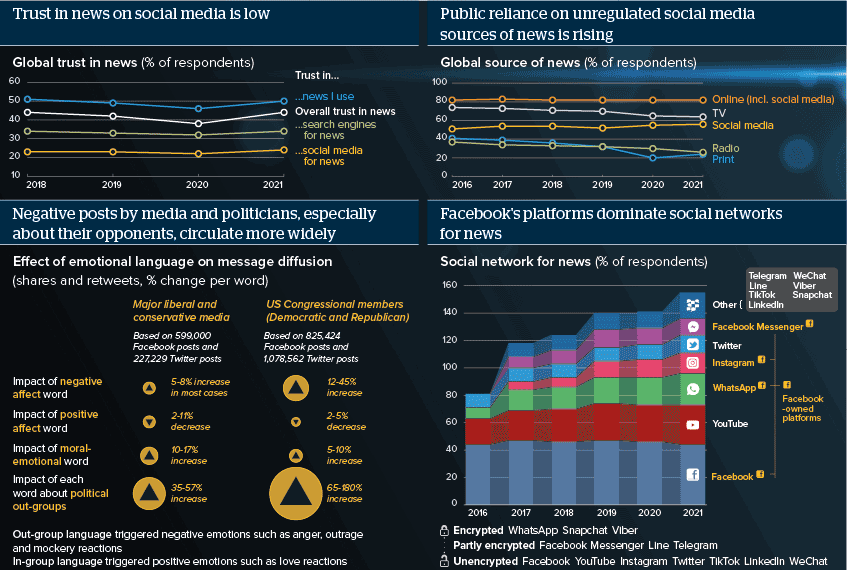News on social media will fuel polarisation
Public reliance on social media -- the least regulated and most distrusted source of news -- is rising
Source: Digital News Report (2016-21), Reuters Institute and Rathje et al, ‘Outgroup animosity drives engagement on social media’, PNAS, June 2021
Outlook
Nearly 4 billion people use social media platforms globally. Since this number is likely to rise, such platforms may become the dominant source of news, overtaking TV and reducing overall public trust in news.
This will deepen political polarisation since social media are increasing the incentive for media outlets and politicians to post divisive content. Posts using negative words or expressing moral outrage circulate circulate far more widely on Facebook (the dominant social media source for news) and Twitter.
Moreover, posts about political opponents are more likely to go ‘viral’ than those about allies, and tend to trigger reactions such as anger, outrage and mockery.
Impacts
- The slow pace of legislative change to curb social media disinformation and negativity will cost societies.
- The impact of negative posts by politicians will fuel calls for actions such as Twitter’s ban on former US President Donald Trump.
- News consumption over WhatsApp -- an encrypted platform -- is rising and is impossible to regulate.
See also
- Disinformation is a rising security threat to the West - Aug 16, 2021
- Disinformation fuels South-east Asian censorship risks - Aug 13, 2021
- Trump lawsuit distracts from real social media issues - Jul 8, 2021
- Legislations lag despite serious disinformation risks - Jun 21, 2021
- Political value of social media will rise in Africa - Mar 18, 2021
- More graphic analysis
